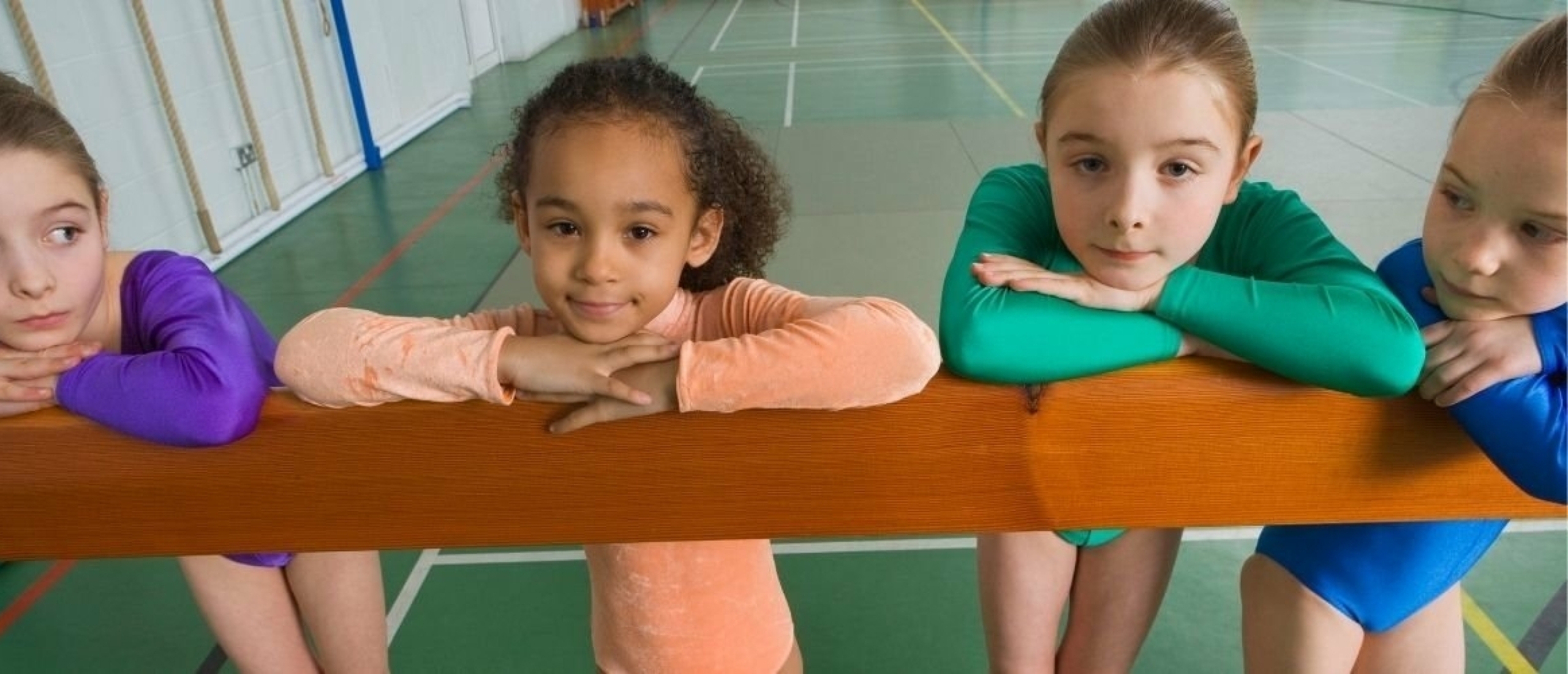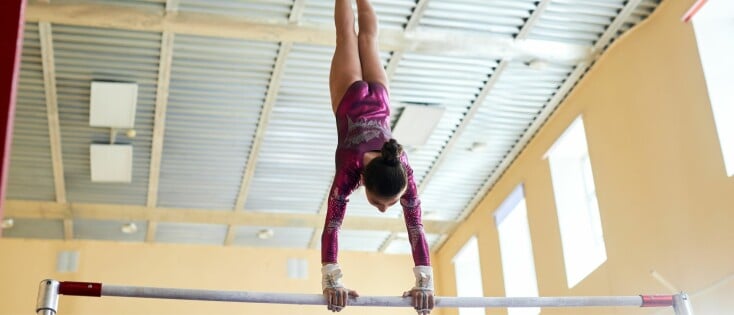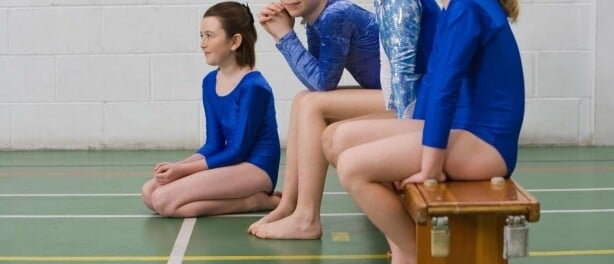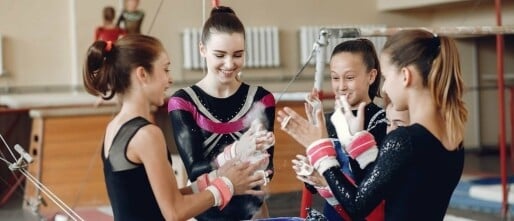A gymnastics speech is of course great fun to give. It is a subject that everyone knows something about, but not everyone knows about it in detail. If you would also like to give a talk about gymnastics, it is useful to read this article carefully. We are going to give you some useful information about gymnastics, which you can use for your own gymnastics talk.
What is Gymnastics – Sport and History
Gymnastics is a sport that involves exercises requiring strength, flexibility, balance, and coordination. It can include running, jumping, doing flips, and balancing. In women's gymnastics, there are four apparatuses: floor, uneven bars, balance beam, and vault. In men's gymnastics, there are six apparatuses: floor, parallel bars, pommel horse, vault, rings, and high bar.
The History of Gymnastics: From Then to Now
Gymnastics is one of the oldest sports in the world. It dates back to the ancient Greeks and Romans, thousands of years ago! But how did gymnastics actually start, and how did it become the sport we know today? You’ll find out here!
Gymnastics in Antiquity: The Very First Gymnasts
A long time ago, in ancient Greece, people already practiced a form of gymnastics. They trained their bodies to stay strong and flexible. They did this by running, jumping, and practicing various movements.
The Greeks thought gymnastics was very important. The word “gymnastics” even comes from a Greek word!
They used gymnastics as a way to stay fit and prepare for the Olympic Games.
Men often trained without clothing (it might sound strange, but it was normal at the time!).
Later, in ancient Rome, the Romans mainly used gymnastics as training for their soldiers. They needed to be strong and quick for battles. The Romans also invented the pommel horse, an apparatus for jumping and balancing.
After the fall of the Roman Empire, gymnastics became less popular for a while. People were more focused on survival than sports. But fortunately, this changed later!
The Inventors of Modern Gymnastics
It wasn’t until the 18th and 19th centuries (about 200-300 years ago) that gymnastics became a popular sport again, especially in Germany. Two men played a major role in this:
Johann Christoph Friedrich GutsMuths (1759-1839) He wrote a book about gymnastics and physical movement for children. He believed that sports and gymnastics are good for your body and health.
Friedrich Ludwig Jahn (1778-1852) He is called the "father of gymnastics" because he made gymnastics super popular! He invented and improved gymnastics apparatuses, such as the high bar, parallel bars, and balance beam. He also founded the first gymnastics club, where people could train together.
Thanks to these men, gymnastics became increasingly popular in Europe. More and more countries started forming gymnastics clubs.
Gymnastics in the Olympics
Gymnastics became an official competitive sport when it was included in the first modern Olympic Games in 1896 in Athens, Greece.
At first, only men were allowed to compete.
It wasn’t until 1928 (over 30 years later!) that women were allowed to compete in gymnastics at the Olympic Games.
Since then, gymnastics has become one of the most popular Olympic sports. Millions of people worldwide watch gymnastics competitions, and gymnasts become famous for their spectacular routines!
The different components
In gymnastics, there are several apparatuses that can be practised. If you are equally good at all the apparatuses, and you try to achieve the highest possible total score at competitions, then you are a multicamp gymnast. Some gymnasts are very good at one particular apparatus. These athletes call themselves apparatus specialists.
Dutch gymnast Yuri van Gelder is known for his performance in the rings. He has been European champion three times and world champion once. Even better known is Epke Zonderland. His speciality is gymnastics on the horizontal bar. He is an Olympic champion, triple European champion and triple world champion on this apparatus. Then you can really call yourself a specialist.
In your gymnastics talk, let your class know what your favourite gymnast is, and tell them about it! Your classmates are sure to enjoy hearing who it is!
About the gymnastics equipment
Jump gymnastics
Pegasus - In the pegasus, gymnasts first sprint over a 25-metre run-up track, then jump onto a springboard, and then perform a specific jump on the pegasus, using their hands to land on the apparatus. Finally, they land on the thick mat. The more difficult the jump, the higher the starting value of the jump.
Uneven Bars - On the Uneven Beam (women's apparatus), the gymnast performs a number of tricks on two parallel horizontal girders set at different heights. The jump off of this apparatus is always from the high beam to the thick mat below. The more difficult the tricks, the higher the score they can achieve.
Beam gymnastics
Balance beam - The gymnast performs a number of exercises of up to 90 seconds consisting of jumps, acrobatic elements and gymnastic turns on a long beam. The beam is 125 centimetres high, 500 centimetres long and 10 centimetres wide.
Beam gymnastics
Floor - This is a large square springy surface of 12x12 metres. The ladies have a floor exercise to music, the men without music. Here again, various acrobatic series and gymnastic jumps must be shown in order to meet the requirements of the exercise.
Men's appliances
Rings - The rings are one of the classic gymnastics apparatuses, they are made of wood, attached to a piece of leather which in turn is attached to steel cables or ropes. Rings can be used for various types of basic movements, such as swinging silently, swinging with a release and diving.
Vaulting - Vaulting involves the gymnast using his hands to support himself on the stirrups or the horse itself, without touching the apparatus with the rest of his body. Examples of voltige elements are flanks, scissors and the 'Thomas Flair' the most important basic movements. There are a number of variants of these, such as the circle flank, the counter scissors and the suisse simple.
Parallel bars – It consists of two parallel bars that are adjustable in height and are at the same height. In men's gymnastics, the height of the bars is chosen so that the feet cannot touch the ground, even in different swing forms.
Gymnsatic bar - As a gymnastic discipline, gymnastics on the stretch is one of the components of the Olympic apparatus gymnastics for men. In men's gymnastics, a swinging height bar is used, which means that the gymnast can hang on the bar without his feet touching the ground.
A good landing
The landing is of course the last step in gymnastics. This is a skill that is really hard to learn, but is super important for competition scores. Without a good landing, the risk of getting injuries during somersaults increases very quickly. To prevent such injuries and to get a high score, the landing must be really top-notch. A successful landing in gymnastics is classified as soft. This also means that the landing must look smooth.
Agility
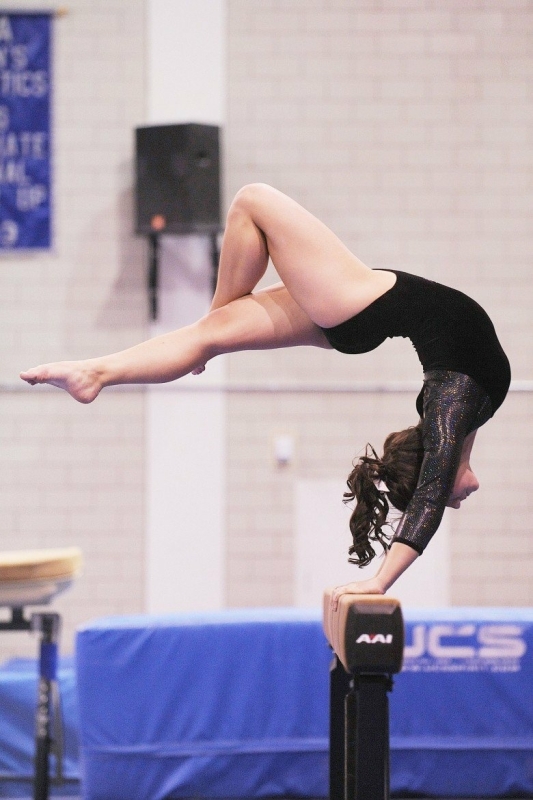
In gymnastics, most gymnasts are very flexible. They can do a splitset with ease, and they can do a bow without difficulty. Flexibility is more or less a prerequisite for good gymnastics, and for getting high marks at a competition. A splitshot on the floor has to be done completely in splitshot. And a small curve on the beam earns you a lot of points. The more flexible you are, the more benefits you will gain in gymnastics.
Power
Being strong is also an important condition to become good at gymnastics. In addition to flexibility, it takes a lot of jumping power to do a splitshot on the floor. And what about jumping over the pegasus? Running up, down and over the pegasus requires a great deal of strength from your body.
What should you wear?
Most girls and boys who do gymnastics wear a leotard with gymnastics shorts during lessons. It is easy to move around in this suit, so that you can do all the exercises properly. Girls and boys with long hair wear it in a ponytail or bun, so it does not bother them.
On the uneven bars, parallel bars, rings and horizontal bar, most gymnasts wear leathers on their hands in order to have a good grip on these apparatuses. They also use magnesium. This is a kind of white powder that makes your hands even more slippery. During gymnastics competitions it is compulsory to wear a leotard and to keep your hair tidy.
If you have a gymnastics outfit of your own, it is fun to take it along during your presentation! Then you can show your classmates what your leotard looks like. Who knows, you might even dare to give your speech in your gymnastics outfit! Then you can show some cool tricks right away.
How do you become a good gymnast?
To become really good at gymnastics, you have to train and practice a lot. Top gymnasts often train 30 hours a week. You can only keep this up if you really enjoy the sport. This is the most important condition for becoming a good gymnast: passion and fun!
Do you need more information about gymnastics lecture? Then take a look at the platform of Gymnastics Tools!

